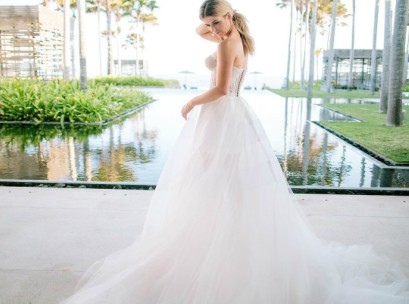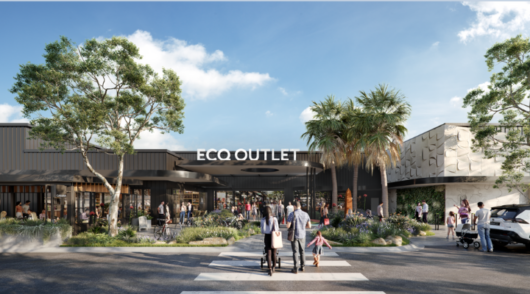 The growing number of online wedding marketplaces in Australia will contribute to the decline and closure of traditional bridal stores, according to an industry analyst.
The growing number of online wedding marketplaces in Australia will contribute to the decline and closure of traditional bridal stores, according to an industry analyst.
But stores selling second-hand or pre-owned wedding gowns in Australia are expected to grow in coming years.
James Thomson, IBISWorld analyst, told Inside Retail that like many retail businesses, bridal stores are subject to conditions affecting the broader economy.
“Sales are heavily influenced by consumer trends, consumer sentiment and changes in discretionary income,” Thomson said. “As a result of these factors, we expect the Bridal Stores industry revenue to decline by 1.9 per cent in 2017-18 to $303.9 million.”
Thomson said while traditional wedding retailers have the advantage of face-to-face customer service, online retailers represent a growing threat to bricks-and-mortar stores.
“Online retailers offer services such as virtual dressing rooms and live chats with consultants, and benefit from much lower overhead costs than traditional retailers,” he said.
“As a result, they will be able to offer consumers a wide range of bridal attire and accessories at highly competitive prices, this is expected to contribute to the closure of some bricks-and-mortar wedding retailers in the current year.”
He added that they are expecting the number of bridal stores to decline by 0.7 per cent in 2017-18.
Bruno Szajer, co-founder of online wedding dress marketplace Still White, said the online wedding dress business is growing and thriving.
Szajer said in the past 30 days alone, they have sold wedding dresses globally worth around AUD$700,000.
“Over 300,000 unique visitors visit Still White every month,” Szajer told IR.
“We connect brides looking for their dream wedding dress with newlyweds who are looking to recoup some of their wedding budget.”
According to him, sellers have already earned over $21 million through their platform.
Szajer said about 20 per cent of the dresses on Still White are brand new, the remainder secondhand.
“We do not hold any stock or have physical stores,” he said. “We operate globally across 16 regional websites.”
Szajer said the gowns on their site are available immediately, which is good news for brides-to-be who don’t handle waiting that well.
“Buyers normally receive the dress within 48 hours after payment is made when the dress is shipped, or can pick it up straight away if meeting the seller in person,” he said.
Thomson said the market for second-hand or pre-owned wedding gowns in Australia is growing, particularly in times of weak consumer sentiment with consumers increasingly looking for ways to save money.
“Given weddings are a significant cost for young couples, finding any area to save money can be of great benefit to newly-weds,” Thomson said.
“With Australia’s growing population and the impending legalisation of same-sex marriage, IBISWorld expects to see an increasing number of businesses opening and specialising in second-hand and pre-owned wedding attire.”
Thomson said the average cost of an Australian wedding is around $37,500, broken down roughly with food, alcohol and venue $21,000; $2,300 entertainment; $2,600 flowers and decorations; $3,500 wedding clothing and accessories; $1,300 ceremony; $3,000 photography and $3,800 others (cars, hair, makeup, accommodation, stationary etc.).
According to Thomson, the Bridal Stores industry is highly fragmented and the majority of businesses are owner-operated. There is no business in the industry that account for more than 5 per cent of revenue, though several players operate multiple stores.
“Some bridal stores stock well-known designer brands to attract consumers and gain market share,” he said. “These businesses are better placed to thrive in a competitive industry.”
He said the fragmented and diverse nature of the industry means that there is a high number of small, independent businesses that operate locally and service specific demographics.
“There are only a few players that operate multiple locations or franchises, such as Raffaele Ciuca and Spurling,” Thomson said.
Raffaele Ciuca, a family business which specialises in wedding dresses, started out as a men’s tailoring business in St Georges Road, North Fitzroy.
The retailer introduced bridal wear in 1982 where they opened their second store in Coburg, which they outgrew and later relocated to a larger store on Sydney Road, Brunswick. In 2005, the company expanded and opened another store on High Street, Armadale.
Spurling Formalwear, which has been in the business for 80 years, also started as a men’s tailoring business with just one store in the Melbourne suburb of Footscray. The company has since grown to include bridal, formalwear and suit hire with over 150 stores across the country.
Thomson said as established bridal shopping strips become too highly concentrated, stores may open in different areas that have exposure to potential consumers and new markets.
“With the growing Australian population and same-sex marriage legislation on the horizon we expect the number of wedding stores to increase at an annualised rate of 1 per cent over the next five years,” he added.
Access exclusive analysis, locked news and reports with Inside Retail Weekly. Subscribe today and get our premium print publication delivered to your door every week.





